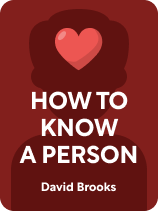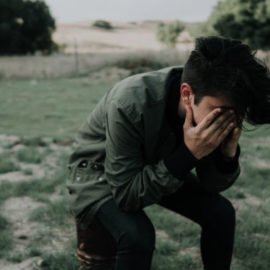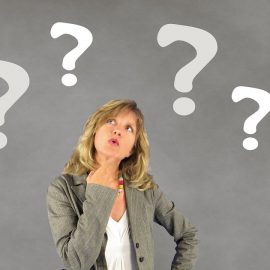

This article is an excerpt from the Shortform book guide to "How to Know a Person" by David Brooks. Shortform has the world's best summaries and analyses of books you should be reading.
Like this article? Sign up for a free trial here.
Why is getting to know someone so vital to our well-being? How can you improve your moral character and society at the same time?
According to David Brooks, there are two reasons why getting know people is important. Knowing other people is a moral act that helps us develop our character as individuals, and it’s also a social act that can help us reverse negative changes in the modern world.
Let’s take a closer look at both of these ideas.
How We Treat Others Defines Our Moral Character
First, Brooks considers the effort of getting to know someone a fundamentally moral act. He characterizes the time, attention, and skill you put into seeing and understanding other people as an indicator of the kind of person you are. Morality consists of the small things you do every day, according to Brooks. So he believes we should be present with other people, make an effort to understand them in the context of their lives, and strive to always treat them well.
(Shortform note: Essayist Annie Dillard famously observed that “how we spend our days is, of course, how we spend our lives”—a view that echoes Brooks’s emphasis on the daily choice to be present with others. Dillard suggests that our routines reflect our values and define our lives’ meaning. Individual days might not always seem significant, but the cumulative impact of our consistent choices over time truly matters. Dillard’s perspective suggests that focusing on meaningful interactions and pursuits, rather than fleeting pleasures, can lead to a more fulfilling existence. This may highlight why Brooks views the effort to understand others as a fundamental aspect of living a good life.)
When explaining the moral importance of knowing others, Brooks notes that the goal isn’t just to understand them, but to be understanding of what they’re going through. Brooks explains that to understand someone is to grasp what they’re thinking or feeling. But to be understanding of someone means going a step further: offering empathy, acceptance, and consideration for what they’re experiencing in the present moment. He explains that according to philosopher Iris Murdoch, extending this kind of understanding and empathy to others is a crucial moral task because the tone of our interactions with each other in these everyday moments forms the substance of our character.
(Shortform note: As Brooks explains, Murdoch believed that understanding another person requires going beyond mere intellectual comprehension. This deeper form of understanding requires humility, vulnerability, and loving attention to others. It also involves acknowledging how difficult it is to fully grasp another person’s experiences and resisting the tendency to project our own views onto them. In The Sovereignty of Good, Murdoch compares the process of developing this understanding to learning a new language: Both require patient and respectful attention to perspectives that might feel foreign to you—and opening yourself up to being changed by other people’s experiences.)
Knowing Each Other Can Help Us Build a Better Society
In addition to seeing the work of getting to know other people as a moral act, Brooks characterizes it as a profoundly social act. He explains that knowing other people can help us repair some of the problems that drive people apart. And when we strengthen our relationships as individuals, that can help us reinforce our society as a whole. Brooks emphasizes that it’s imperative to our survival to fix the problem of not relating to each other.
When you look around, you can see that many people struggle with a sense of loneliness, isolation, and distrust of other people. This can lead to bitterness, animosity, and even violence. Brooks contends that divisions over differences in race, ideology, and socioeconomic background—along with a lack of understanding and empathy for those differences—wear away at the fabric of our communities. When we’re unable to relate to each other or communicate effectively, we create a culture of hostility and dehumanization. This hurts our ability to work toward common goals and to exercise the trust and respect we need to maintain a healthy, functioning society.
(Shortform note: Brooks’ assertion that many Americans feel lonely and distrustful of others is backed by research. Approximately 60% of Americans report feeling lonely on a regular basis—a public health concern that potentially rivals the impact of obesity or diabetes. Research also suggests that lonely people may be less trusting of others, as demonstrated in experiments where lonely study participants shared less money in trust-based games and showed reduced brain activity related to trust formation. Researchers think the relationship between loneliness and distrust might be bidirectional: Low trust can potentially lead to loneliness, and loneliness can also cause people to view others as less trustworthy.)

———End of Preview———
Like what you just read? Read the rest of the world's best book summary and analysis of David Brooks's "How to Know a Person" at Shortform.
Here's what you'll find in our full How to Know a Person summary:
- The benefits of really getting to know other people
- How to better understand people on a personal level
- Why our morality and relationships are in a crisis






